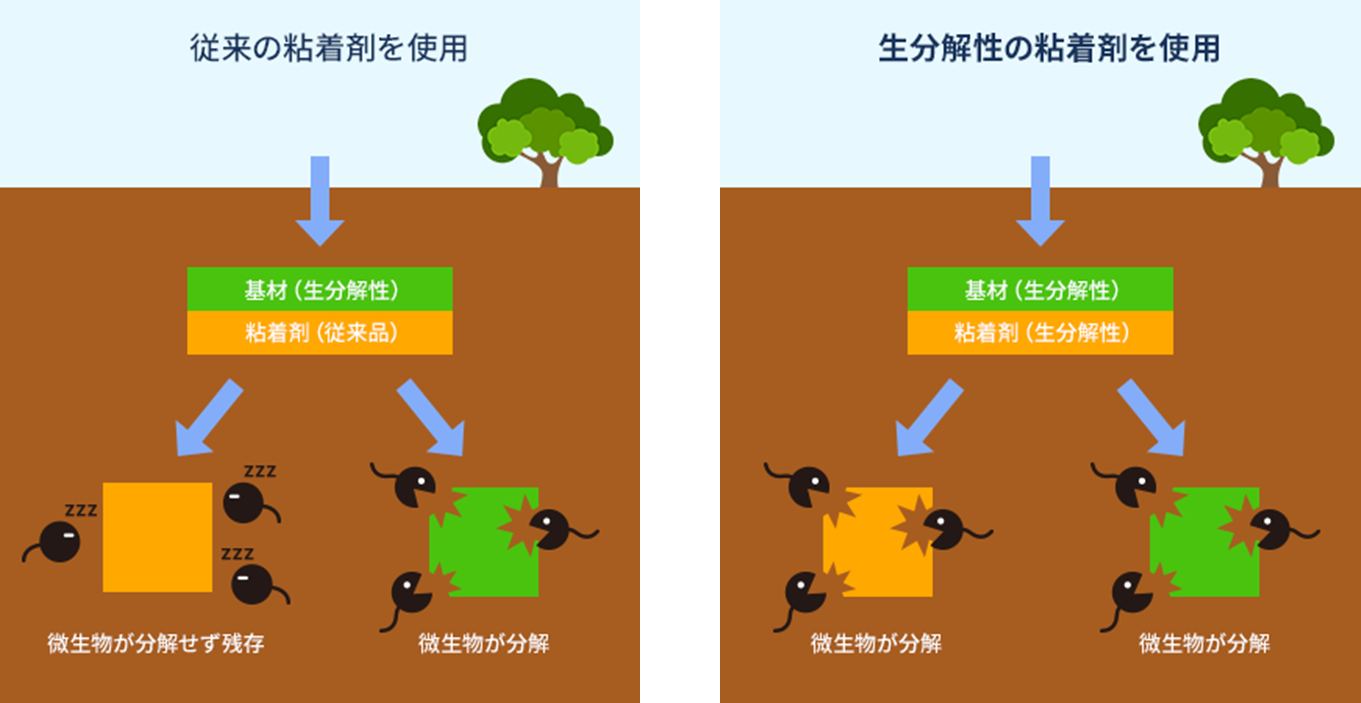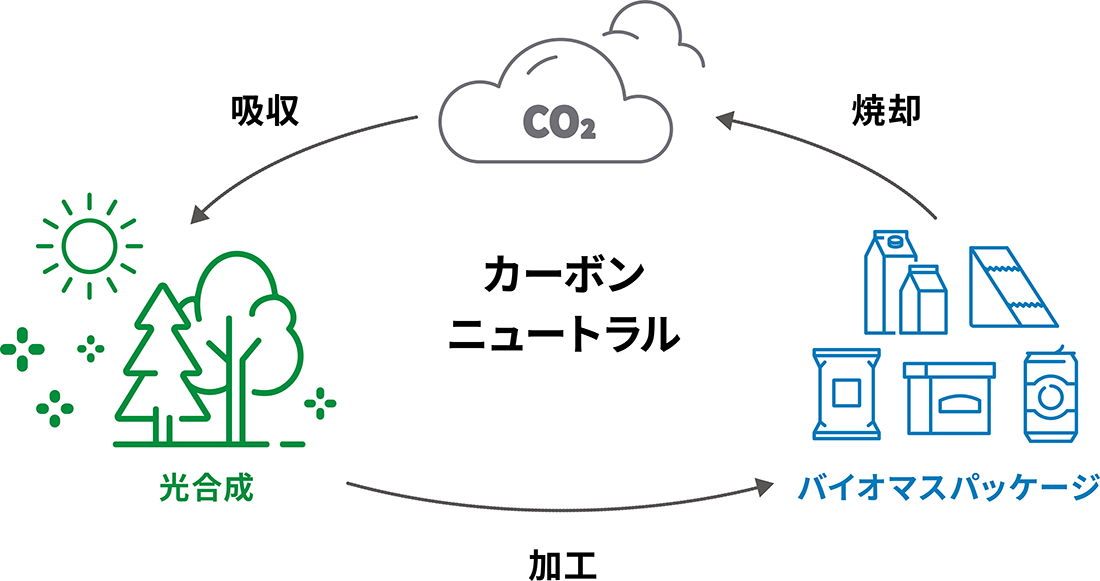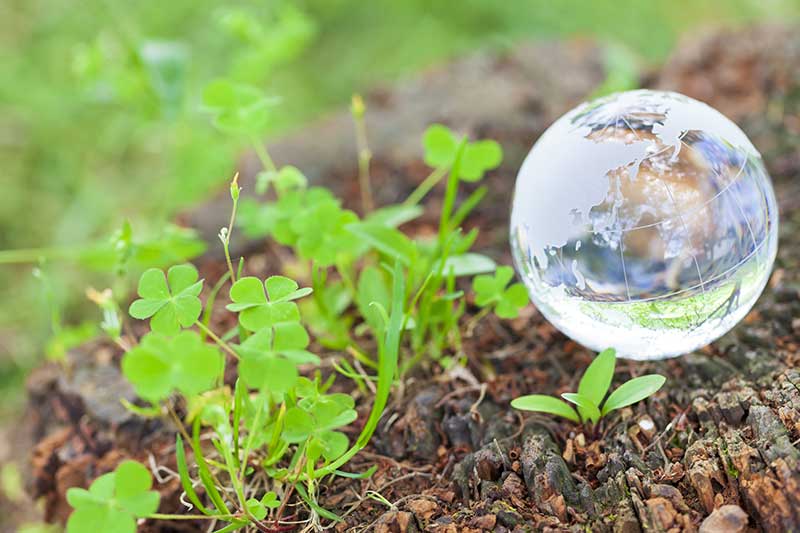Application technology of “polymer design” Biodegradable resin
Technology overview

Biodegradability refers to the property of a substance being decomposed down to the molecular level by the movement of microorganisms, and ultimately circulating into the natural world as carbon dioxide and water.
All biomass plastics are made from plant-based raw materials, but they also include plastics that do not biodegrade. On the other hand, there are biodegradable plastics that are made from petroleum-derived raw materials.
Biodegradable plastics and biomass plastics are collectively called bioplastics.
The Group's biodegradable products use biomass and biodegradable polylactic acid (PLA) * as the main raw material, and we design and manufacture our own polymers according to the application. We provide differentiated and one-of-a-kind biomass and biodegradable products for different applications such as inks and pressure sensitive adhesives.
- The ease of biodegradation varies depending on the material and decomposition environmental conditions (temperature, humidity, type of microorganisms, amount, etc.), so tests were conducted under various conditions such as the ocean, fresh water, soil (home and industrial), and compost. It is defined by ISO standards. For example, polylactic acid is a material that biodegrades under composting conditions.
Advantages of using biomass products and biodegradable products
Benefits of using biodegradable products
In the past, even if the paper or film base materials were changed to biodegradable products, the inks, adhesives, and pressure sensitive adhesives used there remained in nature without being decomposed. However, by using biodegradable inks, adhesives, and pressure sensitive adhesives, it becomes a renewable packaging material that eventually decomposes into water and carbon dioxide and circulates in the natural world.

Advantages of using biomass products
Plants that are the raw materials for biomass plastics absorb CO2 in the process of growth, so even if CO2 is generated by burning when biomass products are disposed of, the amount of CO2 that causes global warming will not increase as a whole. This is based on the idea of "carbon neutrality".
In addition, the raw materials for biomass plastics are renewable resources such as plants and animals, and can be used sustainably. By using it instead of limited fossil resources such as oil and coal, it leads to the conservation of fossil resources. These are the benefits of using biomass products.

Biodegradability and biomass level
Biodegradability indicates the rate (%) at which organic matter is decomposed over a certain period of time by the action of microorganisms, and is an indicator of how easily it is decomposed in the environment. On the other hand, biomass content indicates the ratio (wt%) of the dry weight of the biomass raw material used to the dry weight of the product, and is an indicator of how much biologically derived substances (biomass) the product contains. is.



